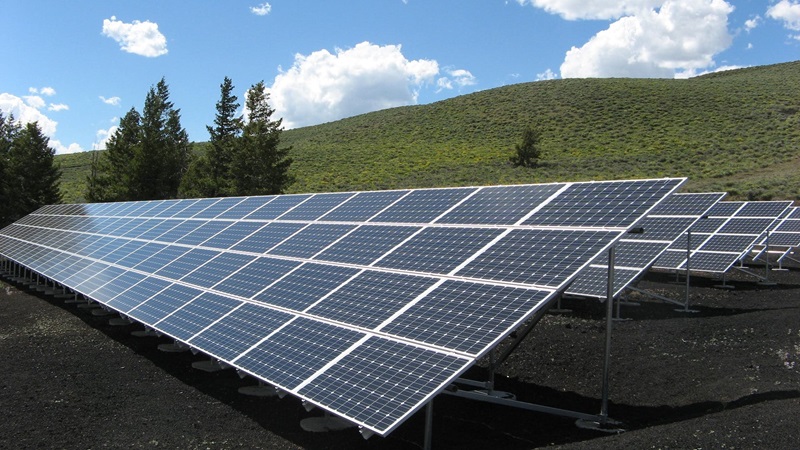Solar Panels: A Sustainable Energy Solution
Solar panels are devices that convert sunlight into electricity using photovoltaic (PV) cells. PV cells are made of materials that produce excited electrons when exposed to light. These electrons can then be used to generate an electric current.
Benefits of Solar Panels
There are many benefits to using solar panels, including:
- Sustainability: Solar panels are a renewable energy source, which means that they do not produce pollution or greenhouse gases.
- Cost savings: Solar panels can help you save money on your electricity bills.
- Reliability: Solar panels are a reliable source of energy, even in cloudy weather.
- Versatility: Solar panels can be used to power a variety of applications, including homes, businesses, and schools.

Types of Solar Panels
There are two main types of solar panels: monocrystalline and polycrystalline. Monocrystalline solar panels are more efficient than polycrystalline solar panels, but they are also more expensive. Polycrystalline solar panels are less efficient, but they are also less expensive.
How Solar Panels Work
Solar panels work by converting sunlight into electricity using PV cells. PV cells are made of semiconductor materials, such as silicon. When sunlight strikes a PV cell, it knocks electrons loose. These electrons can then flow through a wire, generating an electric current.
Components of a Solar System
A solar system consists of several components, including:
- Solar panels: The solar panels convert sunlight into electricity.
- Inverter: The inverter converts DC electricity from the solar panels to AC electricity, which can be used to power homes and businesses.
- Mounting system: The mounting system holds the solar panels in place.
- Wiring: The wiring connects the solar panels to the inverter.
Solar Panel Efficiency
The efficiency of a solar panel is a measure of how much of the sunlight that strikes the panel is converted into electricity. The efficiency of solar panels has been increasing steadily over the years, and it is now possible to purchase solar panels that are over 20% efficient.
Cost of Solar Panels
The cost of solar panels has been decreasing steadily over the years, making them more affordable for homeowners and businesses. The cost of a solar system will vary depending on the size of the system and the components that are included.
Solar Panel Incentives
There are a number of incentives available to help homeowners and businesses offset the cost of solar panels. These incentives can include tax credits, rebates, and cash payments.
Installing Solar Panels
Solar panels can be installed by a qualified installer. The installation process will typically take a few days.
Solar Panel Maintenance
Solar panels require very little maintenance. However, it is important to have your solar panels inspected annually to ensure that they are working properly.
Conclusion
Solar panels are a clean, sustainable, and affordable way to generate electricity. If you are considering installing solar panels, I encourage you to contact a qualified installer to get a quote.
I hope this article has been helpful. Please let me know if you have any questions.



Leave A Comment